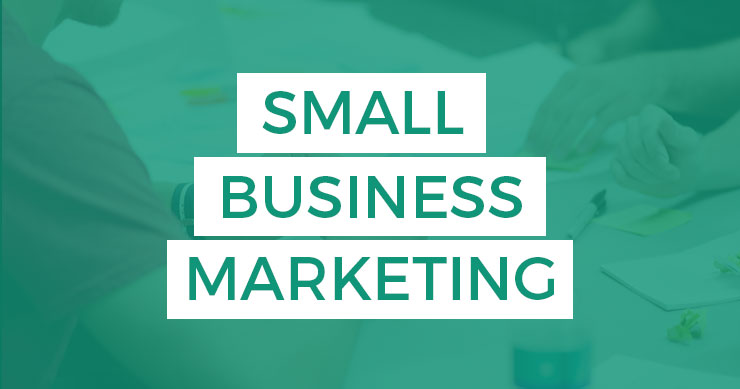If you weren’t tied to the blogosphere this weekend, you may have missed two very interesting conversations taking place on two very different and reputable blogs. Brian Solis started a sensible conversation about full disclosure for sponsored tweets on TechCrunch, while Chris Brogan looked at brand relationships in his post Quid Pro No. The issues are intrinsically tied.
There’s been a lot of talk about sponsored conversations lately as Guy Kawasaki continues to get new cars, the FTC takes on the burden of trying to regulate sponsored conversations (good luck with that, BTW), and as Izea gets ready to launch a full pay-per-tweet network. Personally, I think the minute the FTC decides they need to regulate Twitter the world has officially gone to hell in a hand basket. We’re now living in a society where the words “FTC” and “Twitter” have ended up in the same sentence.
Wrap your head around that for a moment.
Here’s the thing, the FTC is not going to be able to regulate sponsored tweets in any sort of impressive fashion. Whatever ethic stick they try to wave at it will wreak of their outdated-ness and will miss the point entirely. Brands will still need to figure out how to make sponsored conversations profitable and you won’t find that in your new leather bound FTC rule book. And that’s what you should be thinking about right now – making sponsored conversations profitable. Not worrying about the FTC.
The FTC will fail at regulating sponsored conversations the same way Google has failed at trying to do the exact same thing. There is no clear way to identify what is or is not bought and paid for, because when it comes down to it, only the payer and the payee really know the terms of the deal. I wouldn’t want to have to define what is paid, sponsored, encouraged or natural when it comes to blogging or tweeting because it’s all far too subjective. And because, frankly, everything is bought and paid for in some way. I can’t tell by looking whether or not my favorite blogger is writing a favorable post about Neutrogena because they gave her a free sample a year, six month, three months ago. Neither can Google. Neither can the FTC. There are may too many shades of grey to tackle.
But that won’t stop the FTC from creating “guidelines”. Let them. Because the guidelines they create, will have nothing to do with the “guidelines” you need to create for yourself to make these conversations profitable. Hopefully your competitors will be so focused on the first set, they’ll forget about the second.
 SHOCKING: Disclosure is not what will make the sponsored conversations you start successful or unsuccessful. The trust, relationships and social contracts you create on the Web are what will determine this.
SHOCKING: Disclosure is not what will make the sponsored conversations you start successful or unsuccessful. The trust, relationships and social contracts you create on the Web are what will determine this.
Not too long ago I wrote that affiliate links require trust, not disclosure. If you’re on my Twitter stream or on this blog, I would hope part of that reason you’re here is because you trust I’m not going to feed you a line of crap to make $30. I think my actions are pretty transparent and the relationship that we’ve both opted into here is worth much, much more to me than that. And it should be.
If you’re a brand participating in sponsored tweets or if you’re on the other side as Twitterer with a power account, that’s what you need to remember. It doesn’t matter what the FTC says. Because you can use whatever fancy hashtag you want to disclosure your sponsored tweet, if you have a history of being a shilling douchebag or if you haven’t matched your product to the right thought leader, it doesn’t matter how disclosed it is. No one is going to care.
If you want to be successful with sponsored conversations, you’d be much wiser to ponder the question laid out in Chris Brogan’s piece than in the argument in the one by Brian Solis (though Solis is an expert in his own right). Because that’s what your success is going to be based on. Which, really, shouldn’t be too surprising. Marketing has always been centered on relationships.
How do you profit off sponsored conversations?
If you’re a brand:
- Go after the right thought leaders. Don’t go after the same five people everyone else is using. Find the people who are the most connected to your audience and will therefore give you the most credibility and targeted exposure.
- Be a friend. People are becoming more discriminating with the people and brands they associate themselves with online. I know I’ve personally closed down my Twitter and Facebook accounts much more so than in the past. I only want to be connected to people I have real, tangible relationships with. Your goal as a brand is to make me feel like I have this relationship with you.
If you’re a power blogger or Twitterer:
- Don’t be a douchebag. Don’t sell people out. If you wouldn’t recommend the product naturally, don’t recommend it for cash. I don’t care what the price is. You’ll be losing more than you gain.
- Be trustworthy. Don’t ever give one of your followers a reason to question your motives. End of story.
Let the FTC run around trying to define what a sponsored conversation is, who’s a brand, and what is or is not “ethical” on Twitter. You’re not going to gain people’s trust simply by labeling a tweet with “spon”, “$”, or “paid”. You also won’t do it by creating specialized landing pages that define the term “paid”. You do it by creating relationships before you have a need to act on them and by being someone whose motives people don’t question, even when there is money involved. Worrying about whatever guidelines the FTC will eventually create around sponsored conversations won’t make me money. Learning how to use them will.
Personally, I think the few “guidelines” above are the only ones we need in sponsored conversations. And maybe in life.


